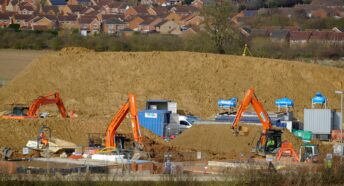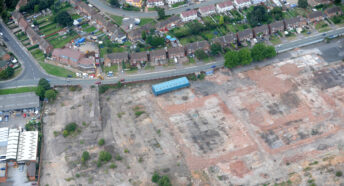Don’t let developers off the hook on nature

The government’s Planning and Infrastructure Bill (PIB) is a crucial moment for the future of the UK’s environment. While the country needs genuinely affordable new homes and future-proof energy infrastructure, these must not be allowed to come at the expense of our already beleaguered natural world.
This is why CPRE supports Wildlife and Countryside Link’s (Link) proposed amendments to the bill, which offer essential safeguards that the government should embrace, not water down
At the heart of these proposals lies a simple principle: developers should deliver genuine environmental improvements, not irreversible damage. Link’s proposed changes to Environmental Delivery Plans (EDPs) would require conservation measures to be implemented before development takes place, particularly in cases where Natural England has identified a risk of irreplaceable environmental damage. This isn’t bureaucratic red tape, it’s basic common sense.
Too often, we’ve seen developers promise environmental benefits that fail to materialise, leaving communities with degraded landscapes and diminished biodiversity. Link’s proposal for the ‘overall improvement test’ to be strengthened would create a higher bar for developers to clear, ensuring that conservation measures significantly and measurably outweigh negative impacts.
Particularly welcome is the proposal that if an area has been identified as important for biodiversity in a Local Nature Recovery Strategy, it will be protected from development. The amendment placing irreplaceable habitats like ancient woodlands and chalk streams off-limits to EDPs (and, therefore, development) acknowledges that some things simply cannot be replaced.
Amendments to building regulations requiring swift bricks, bat boxes and other green infrastructure in new developments would mainstream nature-friendly design. These features cost little but deliver significant benefits for urban wildlife and human wellbeing alike.
Critics may argue these measures will slow development or increase costs. This misses the point entirely. Environmental destruction imposes far greater long-term costs on society through flooding, pollution, and by contributing to the climate emergency.
The government itself has committed to achieving net zero and helping the UK’s natural environment to recover. The amendments proposed by Link would provide tools for the government to use the planning system to deliver on these vital promises. Ministers must resist pressure from developers seeking to maintain the status quo of environmental decline.
This Planning Bill will shape our landscapes for generations to come. We cannot afford to ‘build, build, build’ while simultaneously destroying the natural systems that sustain us. Link’s amendments offer a pathway to development that works with nature, not against it. The government should now seize this golden opportunity to create a planning system fit for the environmental challenges of the 21st century.









